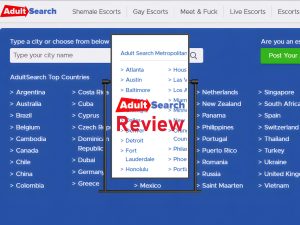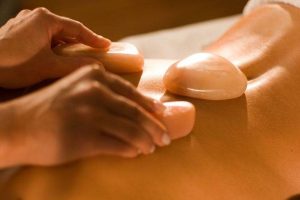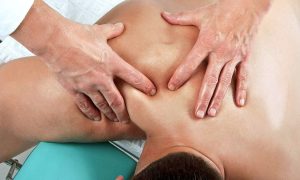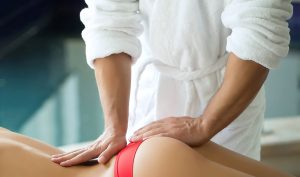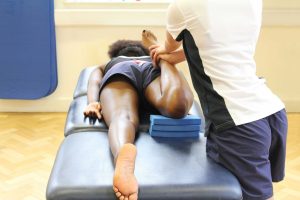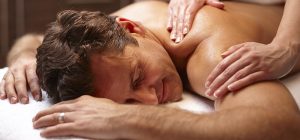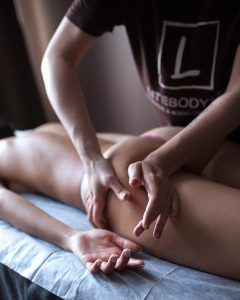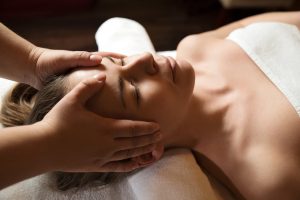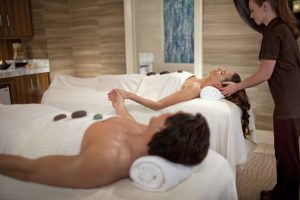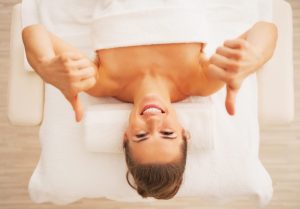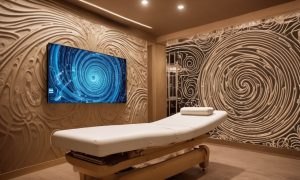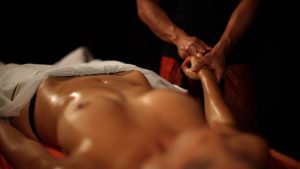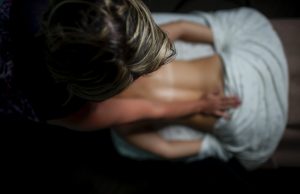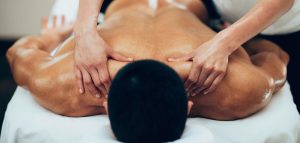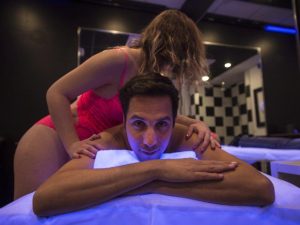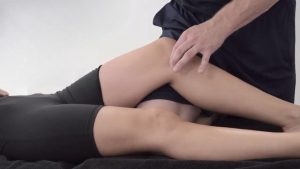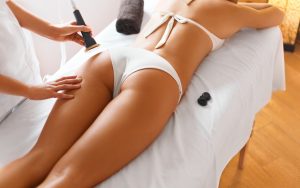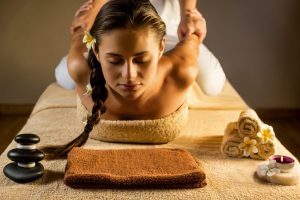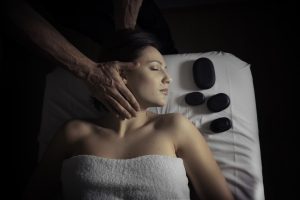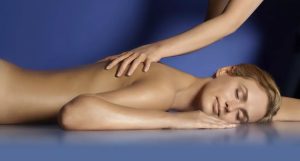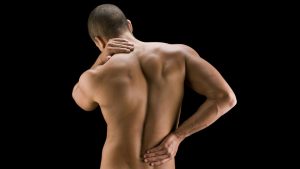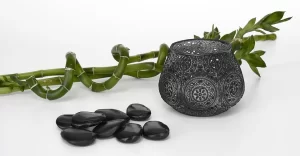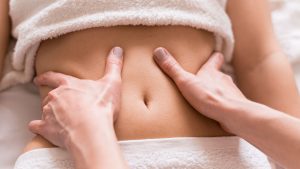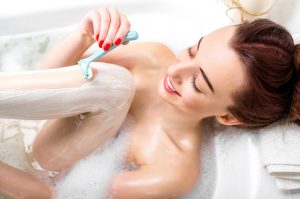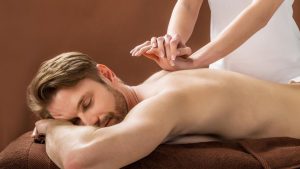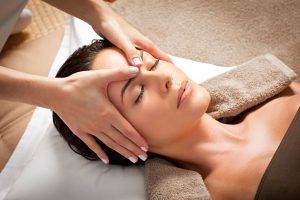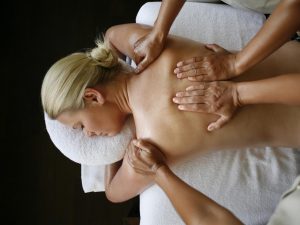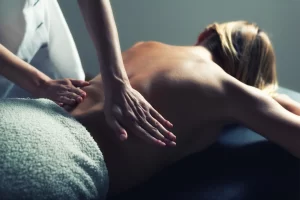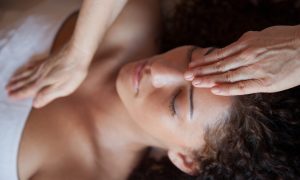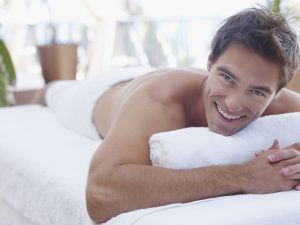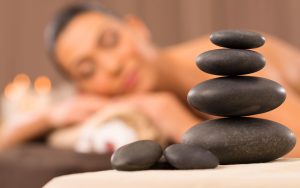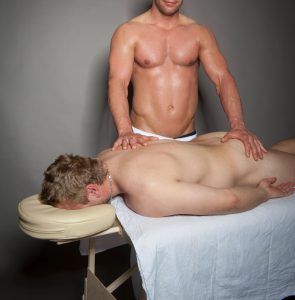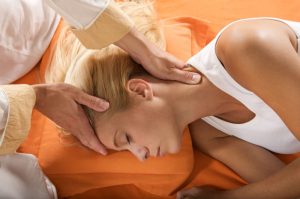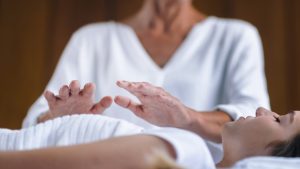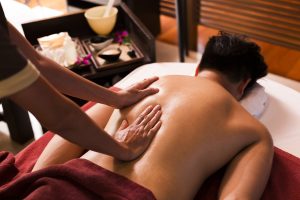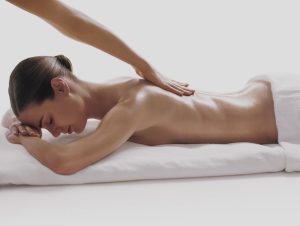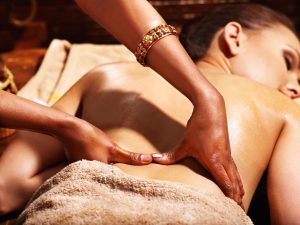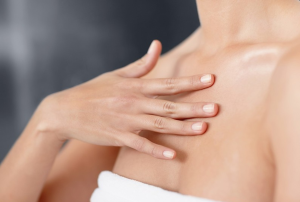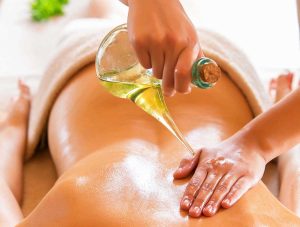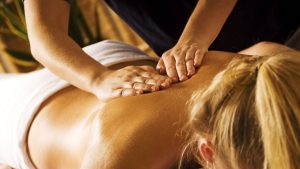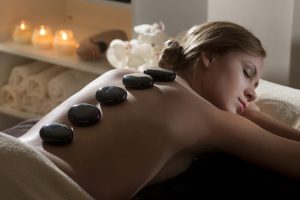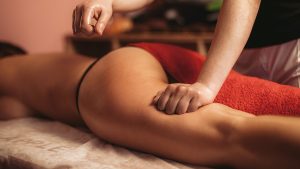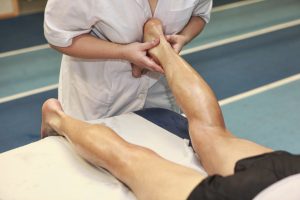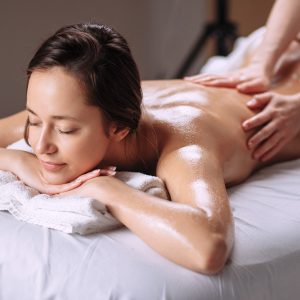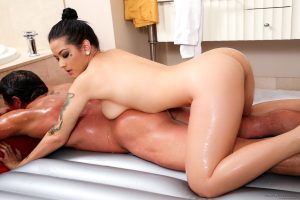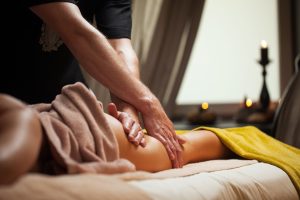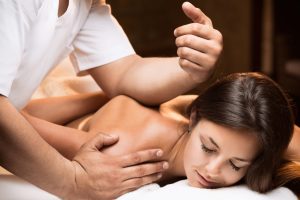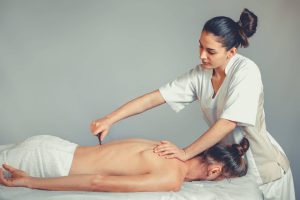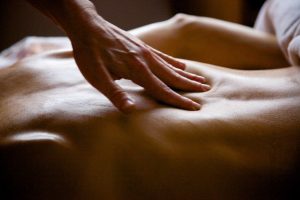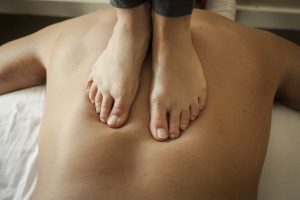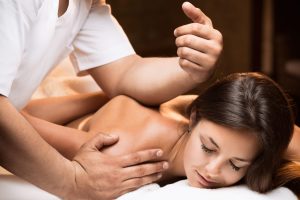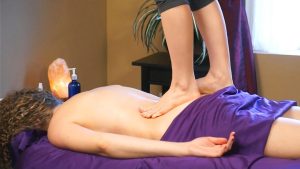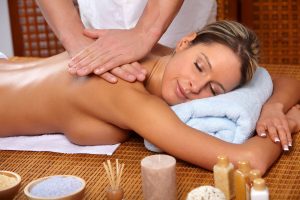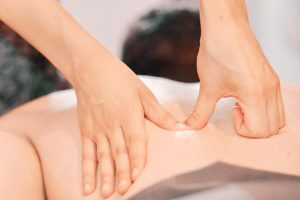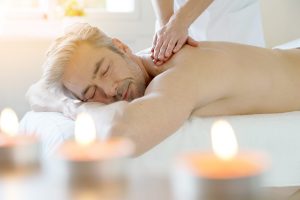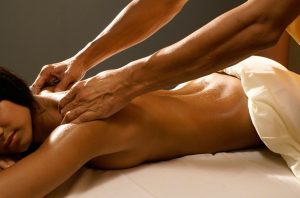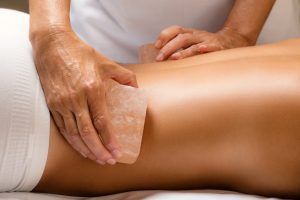The prostate — or P-spot, as it’s often called — is a small muscular gland that produces the seminal fluid found in ejaculate. It helps propel semen from the penis. It’s also surrounded by nerve endings that can feel oh-so-good when touched just right.
What Is the Purpose of Prostate Massage?


The prostate plays a crucial role in the male reproductive system by producing fluid that mixes with sperm to support its viability. Prostate massage may be recommended by a physician for the following reasons:
- Treatment of Medical Issues: It can alleviate inflammation of the prostate, reduce discomfort in cases of urinary issues, and address other urinary problems.
- Diagnosis: It allows for the collection of prostate fluid samples for analysis to detect infections or other abnormalities.
- Prostate Health Enhancement: It can aid in preventing benign prostatic hyperplasia (enlargement of the prostate).
The procedure is typically performed by an experienced specialist using specialized massage techniques. It can be done rectally (rectal massage) or through the urethra (urethral).
Is it easy to achieve orgasm this way?
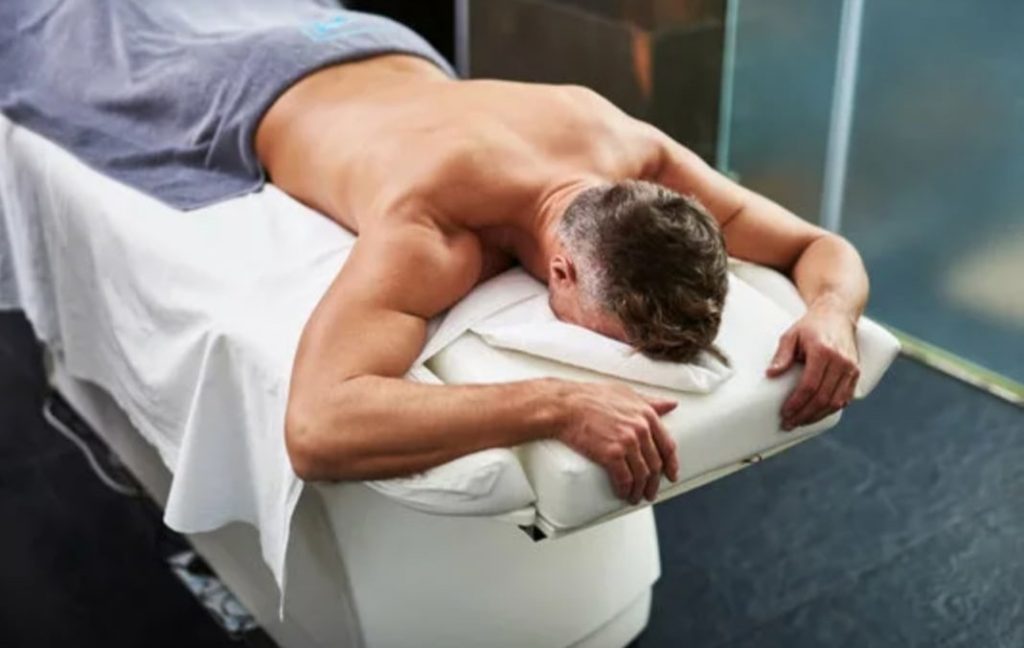

Achieving orgasm with the prostate can be done in various ways. Methods capable of inducing orgasm through prostate massage include the use of a strapon, prostate milking, and experimenting with different positions.
Every body is unique, so it’s important to experiment to see what brings pleasure. If you manage to achieve it, reproducing it will be easy.
If you’re the receiving partner
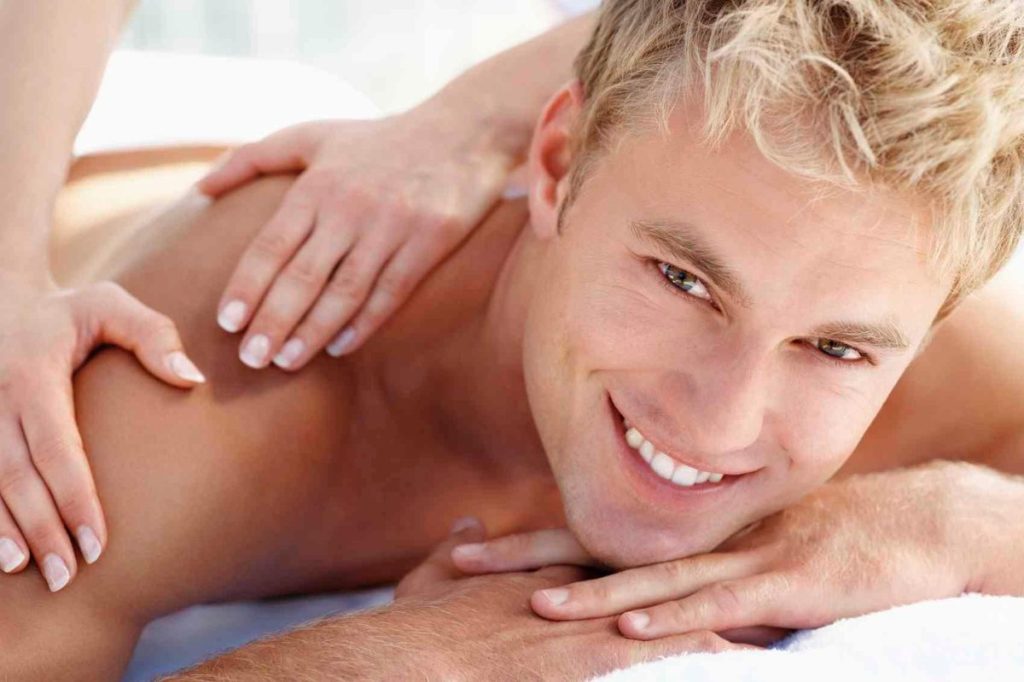

You need to be as relaxed and aroused as possible because it will make the process easier and more enjoyable.
Getting accustomed to the sensation of touching the prostate can also help. Practice with an anal sex toy, such as an anal plug, or use your fingers.
Ensure you set the mood so that you are aroused and ready for action. Light candles, watch adult content, or engage in some good old-fashioned masturbation or foreplay to achieve this.
Lastly, don’t forget to use plenty of lubrication. Applying water-based lube will facilitate penetration and ease sliding during external prostate stimulation.
The Legality of Prostate Massage
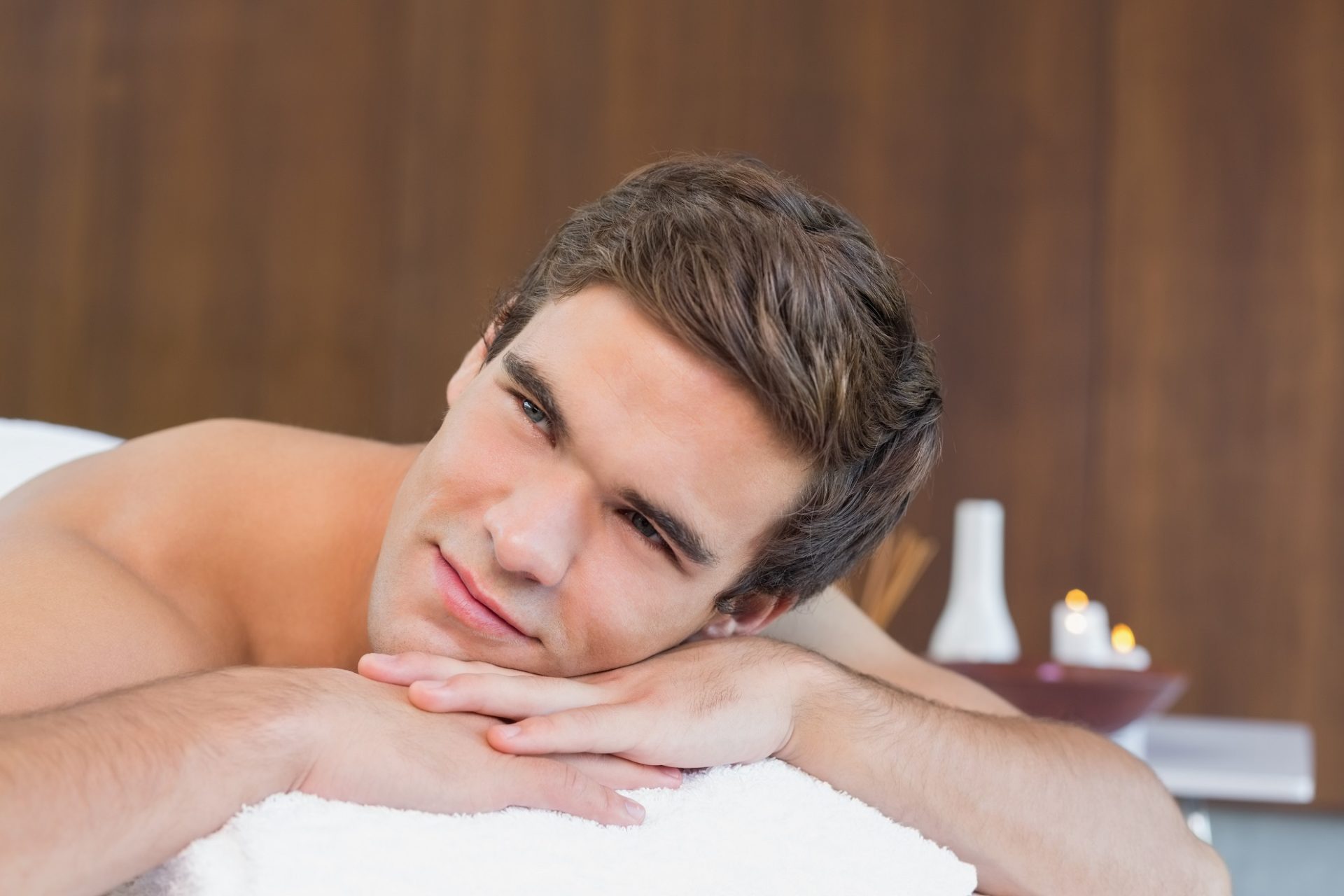

In many countries and regions, when performed by licensed physicians or specialists, prostate massage is legal. Additionally, ethics and professionalism are vital aspects of conducting this procedure. Even if it is legal, specialists must adhere to high standards of ethics and confidentiality to prevent any misuse.
In which countries is prostate massage legal?
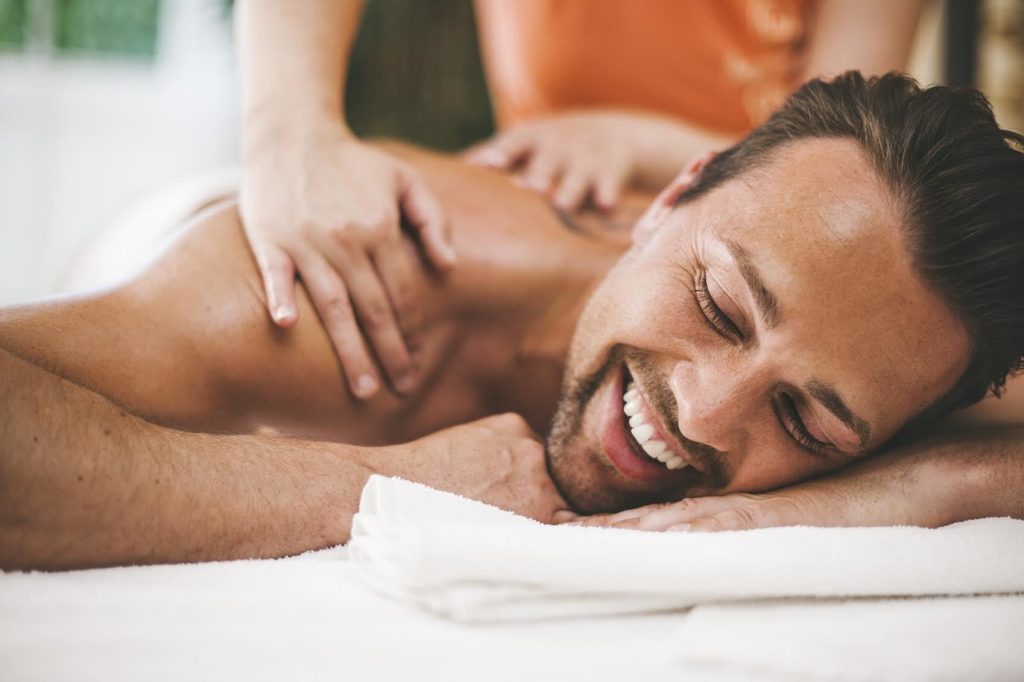

It’s important to note that regulations regarding certain types of massages, including prostate massage, can vary within countries and may be subject to change. Additionally, the legality of specific practices may not be explicitly defined in some regions.
| Country | Prostate Massage Legality |
|---|---|
| Argentina | Legal |
| Australia | Legal |
| Belgium | Legal |
| Belize | Legal |
| Bolivia | Legal |
| Brazil | Legal |
| Bulgaria | Legal |
| Bangladesh | Legal |
| Cuba | Legal |
| Chile | Legal |
| Colombia | Legal |
| Costa Rica | Legal |
| Cyprus | Legal |
| Czech Republic | Legal |
| Denmark | Legal |
| Dominican Republic | Legal |
| Ecuador | Legal |
| El Salvador | Legal |
| Estonia | Legal |
| Ethiopia | Legal |
| Finland | Legal |
| Germany | Legal |
| Greece | Legal |
| Guatemala | Legal |
| Honduras | Legal |
| Hungary | Legal |
| India | Legal |
| Indonesia | Legal |
| Israel | Legal |
| Italy | Legal |
| Kenya | Legal |
| Kyrgyzstan | Legal |
| Latvia | Legal |
| Luxembourg | Legal |
| Malta | Legal |
| Mexico | Legal |
| Netherlands | Legal |
| New Zealand | Legal |
| Nicaragua | Legal |
| Panama | Legal |
| Paraguay | Legal |
| Peru | Legal |
| Poland | Legal |
| Portugal | Legal |
| Senegal | Legal |
| Singapore | Legal |
| Slovakia | Legal |
| Slovenia | Legal |
| Spain | Legal |
| Sweden | Legal |
| Turkey | Legal |
| Uruguay | Legal |
| Venezuela | Legal |
In which countries is prostate massage partially legal?
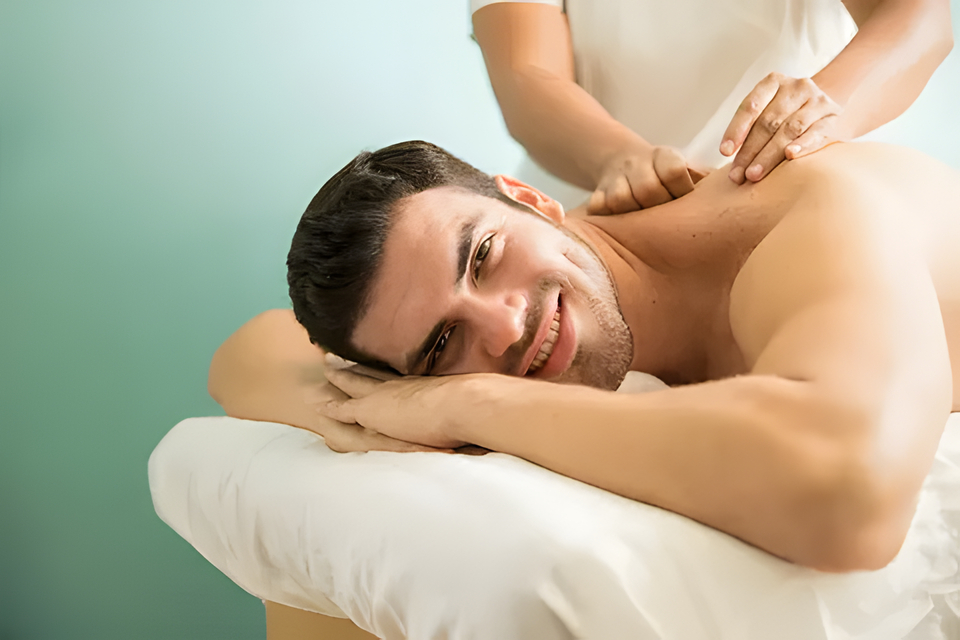

Please note that the legal status of Prostate Massage can be subject to change, and it’s important to verify the current laws and regulations in each country.
| Country | Legal Status of Prostate Massage |
|---|---|
| Armenia | Partially Legal |
| Australia | Partially Legal |
| Canada | Partially Legal |
| France | Partially Legal |
| Iceland | Partially Legal |
| Ireland | Partially Legal |
| Japan | Partially Legal |
| Malaysia | Partially Legal |
| Norway | Partially Legal |
| Sweden | Partially Legal |
| United Kingdom | Partially Legal |
| USA | Partially Legal |
Remember, it’s crucial to consult local laws and regulations or seek legal advice for the most accurate and current information.
Risks and Side Effects of Prostate Massage


Like any medical procedure, prostate massage carries certain risks and side effects, including:
- Pain and Discomfort: Particularly if a patient is experiencing prostate inflammation or other issues.
- Risk of Infection: It is essential for the massage to be performed in sterile conditions by qualified specialists.
- Emotional Reactions: Some patients may feel embarrassment, fear, or discomfort due to the nature of the procedure.
- Allergic Reactions: In cases where oils or lubricants are used, it’s crucial to discuss potential allergies with the specialist beforehand.
Prostate massage providers in Thailand
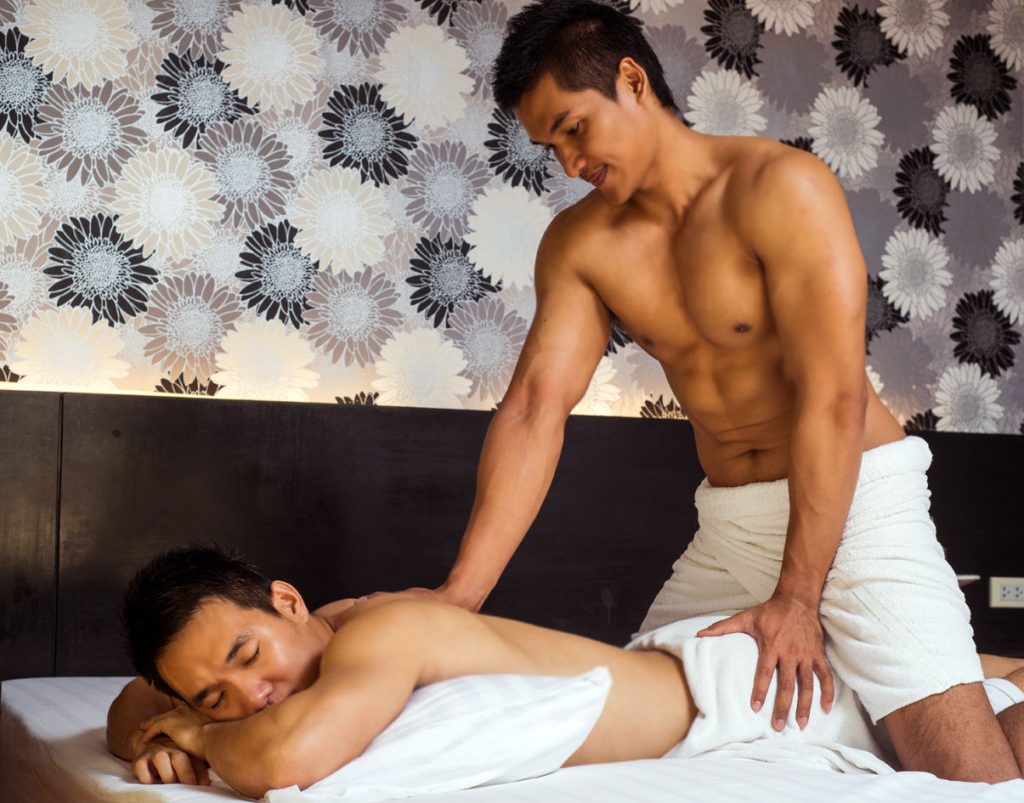

In Thailand, there are roughly two categories of specialists offering prostate massage services: those who focus on providing pleasure and those who have received special training, applying the massage not only for pleasure but also considering its positive impact on health.
In Chiang Mai, there is a significant number of Karsai therapists from various schools. The advantage of prostate massage within the Karsai procedure lies in the therapist’s deep understanding of the process. In addition to the pleasurable sensations, this type of massage contributes to improving health. In the Karsai method, prostate massage can be used to prolong erection and delay ejaculation during future sexual acts.
Prostate massage in Lousiana
There are several salons available in Baton Rouge that provide prostate massage services. These establishments specialize in erotic massage, and their employees choose revealing clothing, giving the place a special intimate atmosphere. In these salons, clients can enjoy not only professional massage services, but also immerse themselves in a unique visual and emotional experience, which is created thanks to the special clothing style of the workers.
How to Find a Professional Masseur
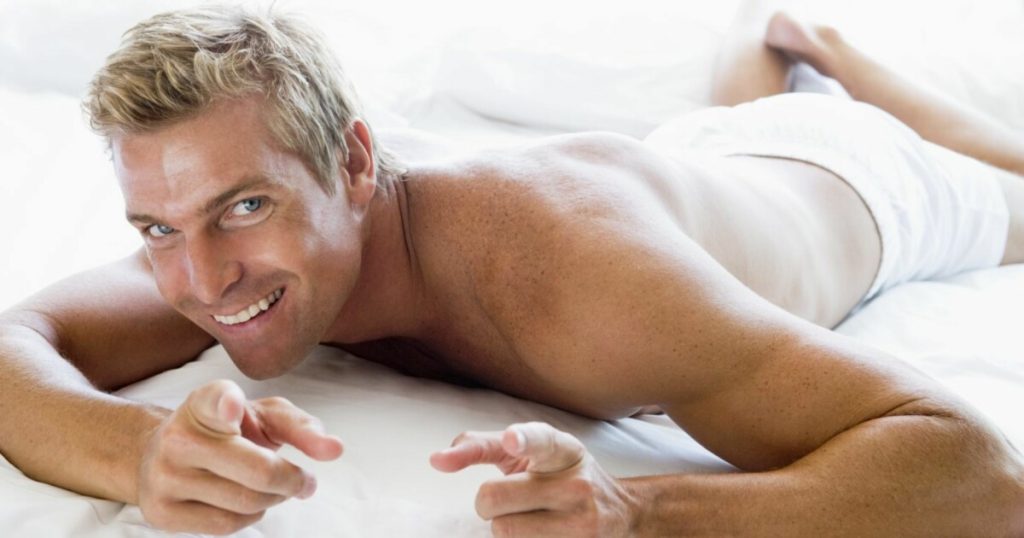

Finding a qualified and trustworthy professional is crucial for your health and safety. Here are some steps to help you find one:
- Consult a Physician: The first step should always be consulting a medical professional such as a urologist or professional masseur for guidance and recommendations.
- Research Local Specialists: Look for professional masseurs online or contact local medical institutions to find a qualified specialist. Ensure that the chosen specialist is licensed and experienced.
- Read Reviews: Additionally, read reviews from patients to gain insight into the specialist’s reputation.
- Discuss the Procedure: Before starting the procedure, the specialist should explain the process, the benefits of prostate massage, and address any questions or concerns you may have.
- Ensure Comfort: It’s essential that you feel comfortable and confident in your choice of specialist. If anything raises doubts or discomfort, consider exploring alternative options or seeking advice from other specialists.
- Maintain Confidentiality: Verify that the chosen specialist maintains high standards of confidentiality and ethics throughout the procedure.
Remember that your health and safety should always be a top priority. If you have doubts, questions, or a need for prostate massage, don’t hesitate to consult qualified medical professionals who can provide the necessary information and recommendations.
Questions and Answers:
Are there age restrictions for prostate massage?
In general, there are no strict age restrictions for this practice. It can be recommended to both younger and older patients depending on medical indications. The decision to undergo this therapeutic procedure should be made individually, taking into account the patient’s medical history, symptoms, and specific needs. A physician assesses how beneficial and safe it may be for each case.
What are the methods of prostate massage?
Rectal massage is the most common method. The specialist inserts a lubricated finger into the rectum and performs gentle massage through the rectal wall. This allows the specialist to assess the prostate’s condition and collect samples of prostate fluid for analysis. Urethral massage involves the insertion of a specialized instrument (urethral probe) through the urethra. The probe has a camera or sensor that enables the specialist to perform the massage by reaching the gland through the urethra. This method is less common and may be more uncomfortable for some patients.
What is prostate massage?
Prostate massage is a form of therapy that involves the gentle stimulation of the prostate gland, which is located between the bladder and the rectum. It can be performed externally or internally with a finger or a specialized massager. This technique is used to improve prostate health and alleviate certain prostate-related issues.
What are the benefits of prostate massage?
Prostate massage offers several benefits, including:
- Relief of symptoms associated with prostate problems, such as prostatitis or an enlarged prostate.
- Promotion of prostate health by improving blood circulation and reducing inflammation of the prostate gland.
- Enhanced sexual pleasure and increased intensity of orgasms.
- Reduction of the risk of prostate cancer by maintaining prostate fluid flow and preventing blockages.
How is a prostate massage performed?
A prostate massage can be performed by a trained massage therapist or a medical professional. It can be done externally by applying gentle pressure on the perineum (the area between the scrotum and the anus) or internally by carefully inserting a lubricated finger or a specialized massager into the rectum. It is important to follow proper hygiene and use appropriate techniques to avoid any complications.
Is prostate massage safe?
When performed correctly and with appropriate precautions, prostate massage is generally considered safe. However, it is important to consult with a medical professional or a qualified massage therapist before attempting prostate massage, especially if you have any pre-existing medical conditions or concerns.
Does prostate massage help with prostate cancer?
Prostate massage alone is not a treatment for prostate cancer. It is primarily performed to alleviate symptoms associated with prostate issues and promote prostate health. If you have concerns about prostate cancer, it is essential to consult with a urologist or a healthcare professional for a thorough evaluation and appropriate treatment options.

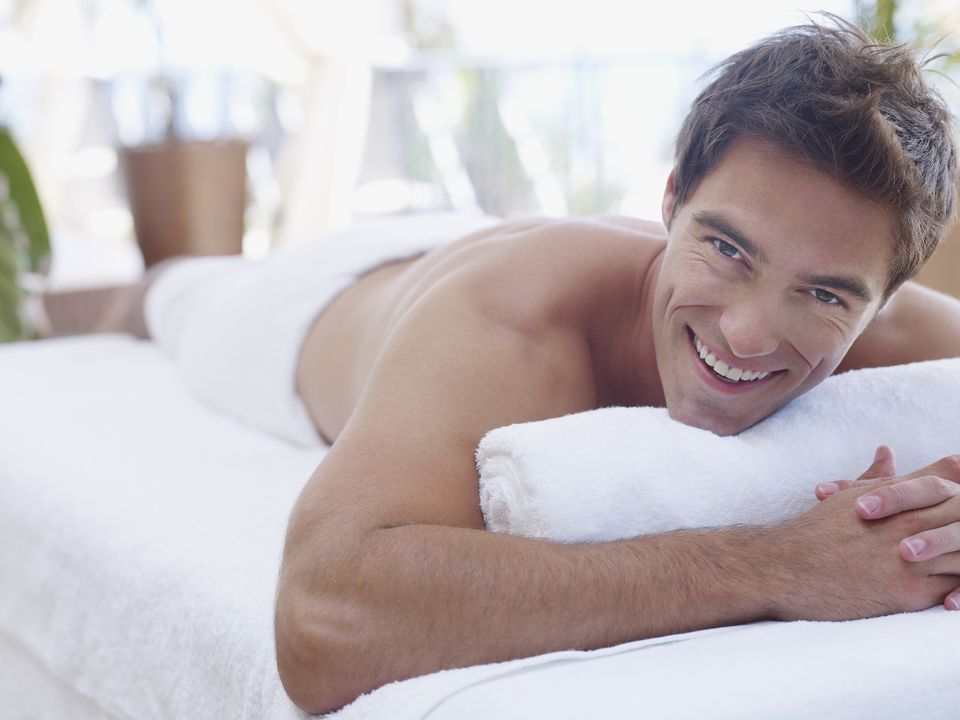










![11 Best Alternatives to Bedpage: Your Ultimate Guide [March 2024]](https://massage.dating/wp-content/uploads/2024/03/Best-Alternatives-to-Bedpage-300x200.jpg)





